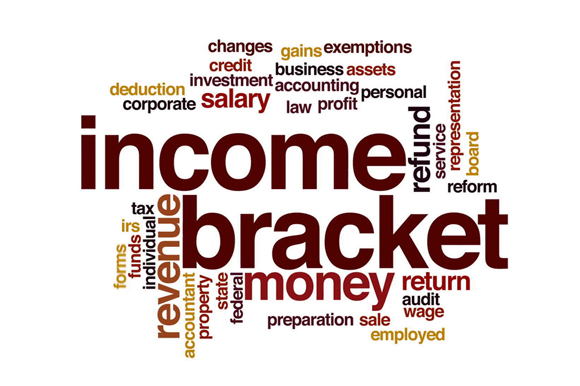If you are a small business owner, Washington, D.C. has changed tax rules to lower your burden but the new rules are fairly complex. Many small businesses, and some that aren't so small, are "pass-through companies," tax-jargon that means the entity's net income isn't taxed at the corporate level but flows straight to their owners' personal returns. That income is taxed at personal income tax rates, as opposed to corporate rates that are generally lower. The new tax law, though, has a valuable deduction that evens things out for pass-throughs, although the accounting gymnastics make this anything other than simple. "The size of the deduction varies, depending on the nature of the business activity and the total income of its owner," says Howard Gleckman, a senior fellow at the Tax Policy Center. "It may also depend on how much the business pays its employees and how much property it owns."  Under the new tax law, the top personal rate drops to 37% from 39.6%, with similar reductions in brackets below the highest level. Yet most U.S. businesses are classified as C corporations, which means these companies are taxed separately from their owners. The new tax law lowers the federal tax for C corps to 21% from 35%. Under the new tax law, the top personal rate drops to 37% from 39.6%, with similar reductions in brackets below the highest level. Yet most U.S. businesses are classified as C corporations, which means these companies are taxed separately from their owners. The new tax law lowers the federal tax for C corps to 21% from 35%.
To balance out the difference, Congress allowed pass-throughs - limited liability companies (LLCs), S corps, partnerships and the like - a 20% deduction on their net income. The effect, for those in the top tax bracket, is to lower an owner's rate to 29.6% from 37%. True, 29.6% is higher than 21%, but owners of C corps, meaning shareholders, pay a tax on dividends they receive, usually 15%. So that comes closer to parity with the pass-throughs. To prevent those part-time jobs from being deemed as pass-through entities, lawmakers limited the new rules. So, you can't suddenly claim you are a consultant and create a sole proprietorship with the intent of grabbing a tax break. Owners of service businesses - doctors, lawyers, and consultants - are limited in what they can deduct. Service businesses, according to the tax law, may count as their principal asset the "reputation or skill" of the owners and employees, while manufacturers may not. In addition, Congress inserted income limits on the deductions that affect all pass-throughs, whether or not they're a service business. The 20% deduction is confined to income of $157,500 for single-filers and $315,000 for married couples. For service businesses, the deduction is phased out progressively in excess of those levels and eliminated entirely when total taxable income is $207,500 for singles or $415,000 for couples filing jointly. For other types of businesses, the deductions over those thresholds are limited to the greater of 50% of paid wages or 25% of wages plus 2.5% of the business' tangible depreciable property. The pass-through rules are a big boon for real estate operators, whose properties usually each are LLCs. Further, if every property in a real estate owner's portfolio, say an office building or a shopping mall, is worth a large amount, the deductions can be sizable. For example, on a shopping mall worth $5 million, 2.5% of its value is $125,000. That's quite a deduction. |